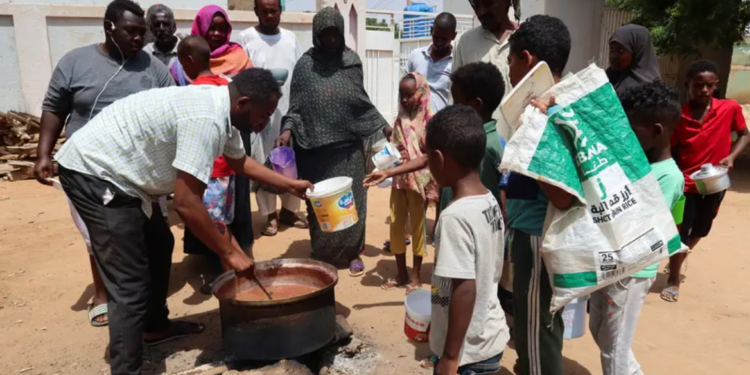Oct 28, 2024 Story by: Editor
UN Secretary-General Antonio Guterres told the Security Council on Monday that Sudan’s people are enduring a “nightmare of violence, hunger and displacement,” with many suffering “unspeakable atrocities” such as widespread rapes. Guterres highlighted “shocking reports of mass killings and sexual violence” in villages across the Gezira province, where the UN and a medical group documented paramilitary attacks that killed over 120 people in a single town.
Guterres stressed that the nation’s military and paramilitary forces have escalated their assaults, with external powers “fuelling the fire,” worsening conditions of hunger and disease for millions. He warned that Sudan’s 18-month-long conflict has the potential to “ignite regional instability from the Sahel to the Horn of Africa to the Red Sea.”
Conflict erupted in Sudan in April 2023 due to a power struggle between the Sudanese army and the Rapid Support Forces (RSF) during preparations for a civilian government, creating a severe displacement crisis. Over 11 million people have been displaced, including three million who fled to neighboring countries. The conflict has claimed more than 24,000 lives, according to the Armed Conflict Location and Event Data Project.
“Sudan is, once again, rapidly becoming a nightmare of mass ethnic violence,” Guterres stated, drawing a parallel with the Darfur conflict two decades ago, which led to genocide charges against Sudanese leaders at the International Criminal Court.
In North Darfur, up to 750,000 people face “catastrophic food insecurity” and potential famine. Guterres urged an immediate ceasefire, urging both sides to protect civilians and ensure humanitarian aid access.
Expressing horror over reports of continued RSF attacks on civilians in El Fasher and nearby areas, including famine-stricken displacement camps, Guterres said, “Those who violate international humanitarian law must be held accountable.”
The UN further reported that nearly 25 million Sudanese — half the population — need assistance, with famine persisting in displacement camps. US Ambassador to the UN, Linda Thomas-Greenfield, emphasized that access, not just funding, was critical, noting that “Millions are going hungry because of access” while Sudanese authorities “continue to undermine, intimidate, and target humanitarian officials.” She called for streamlined humanitarian operations.
Sudan’s UN Ambassador Al-Harith Idriss Al-Harith Mohamed countered, saying the government remains committed to aiding all areas, including RSF-controlled regions, with 10 border crossings and seven airports opened for aid. He noted that a three-month UN access permit through the Adre border with Chad, which ends mid-November, was utilized by 30 trucks allegedly carrying weapons and leading to an escalation in al-Fashir.
Sudan’s government claims the Adre crossing, which has allowed “thousands of mercenaries from Africa and Sahel” into the country, threatens national security, according to Mohamed. Russia’s UN Ambassador, Vassily Nebenzia, affirmed Sudan’s right to close the Adre crossing, asserting that “We’re categorically opposed to the politicization of humanitarian assistance” and that aid should be coordinated with central authorities. Source: Aljazeera

















